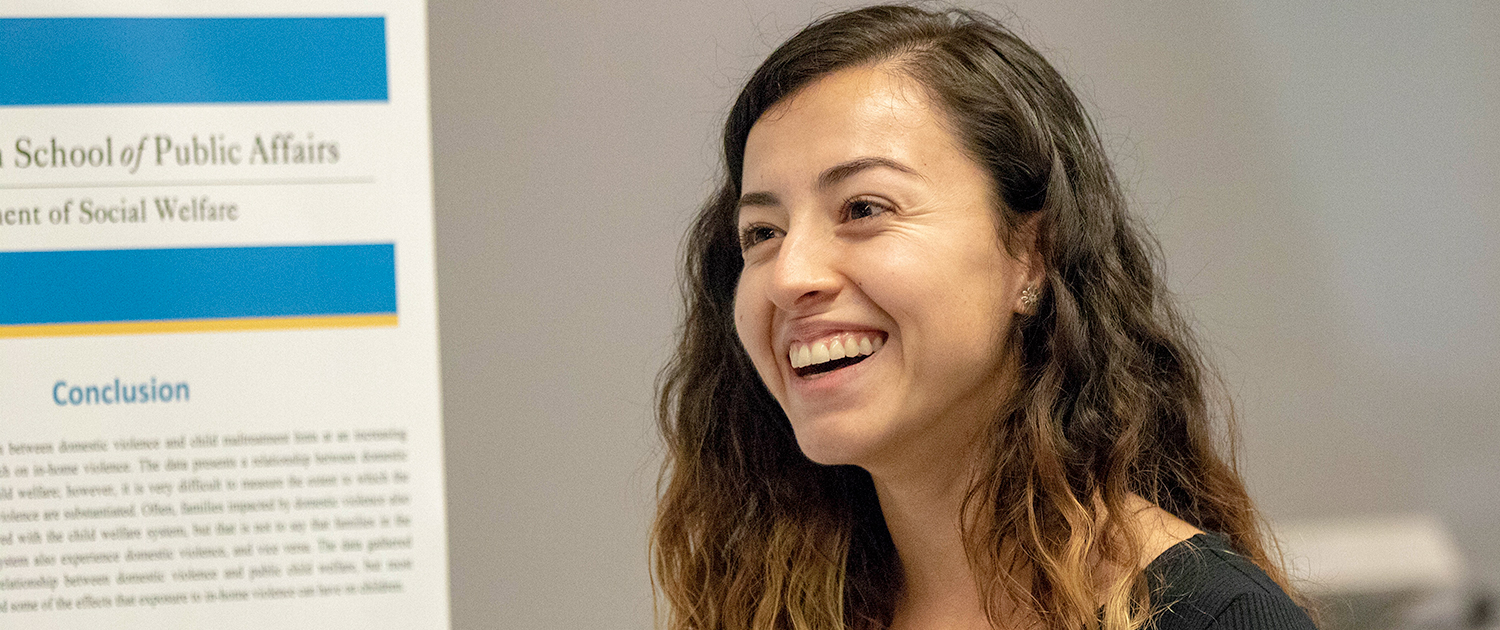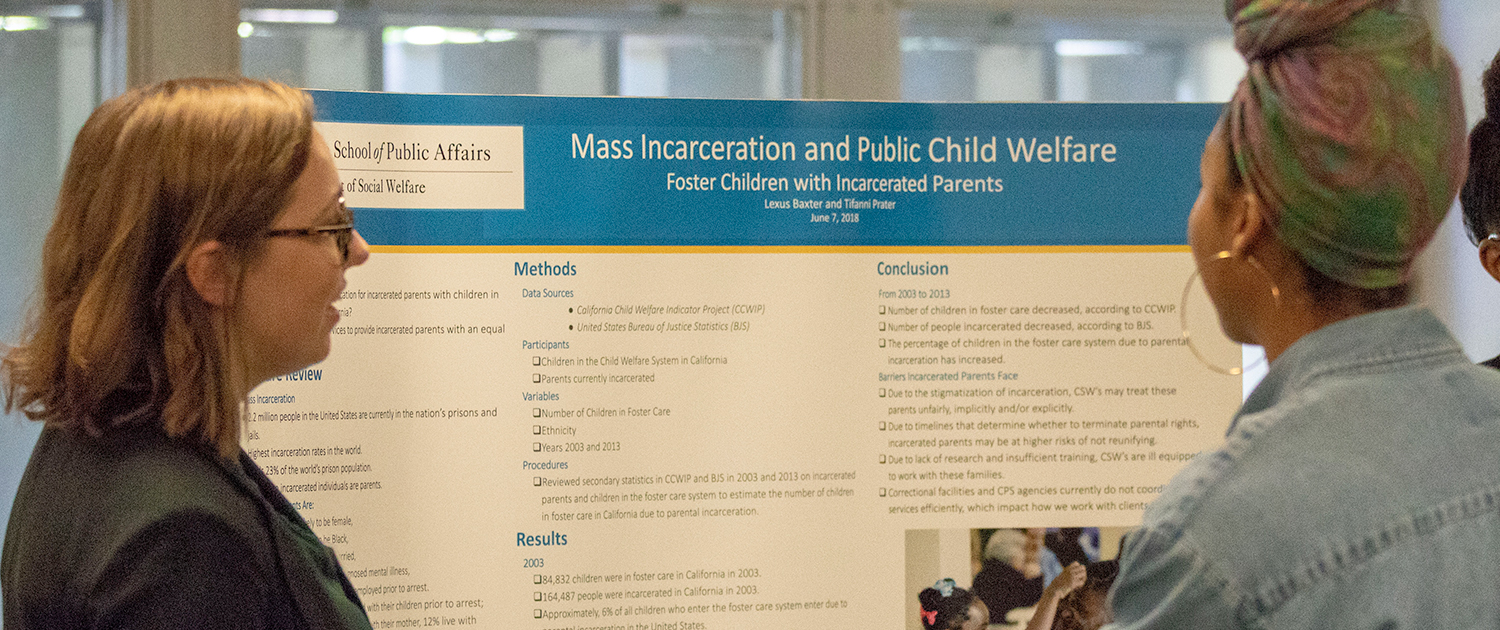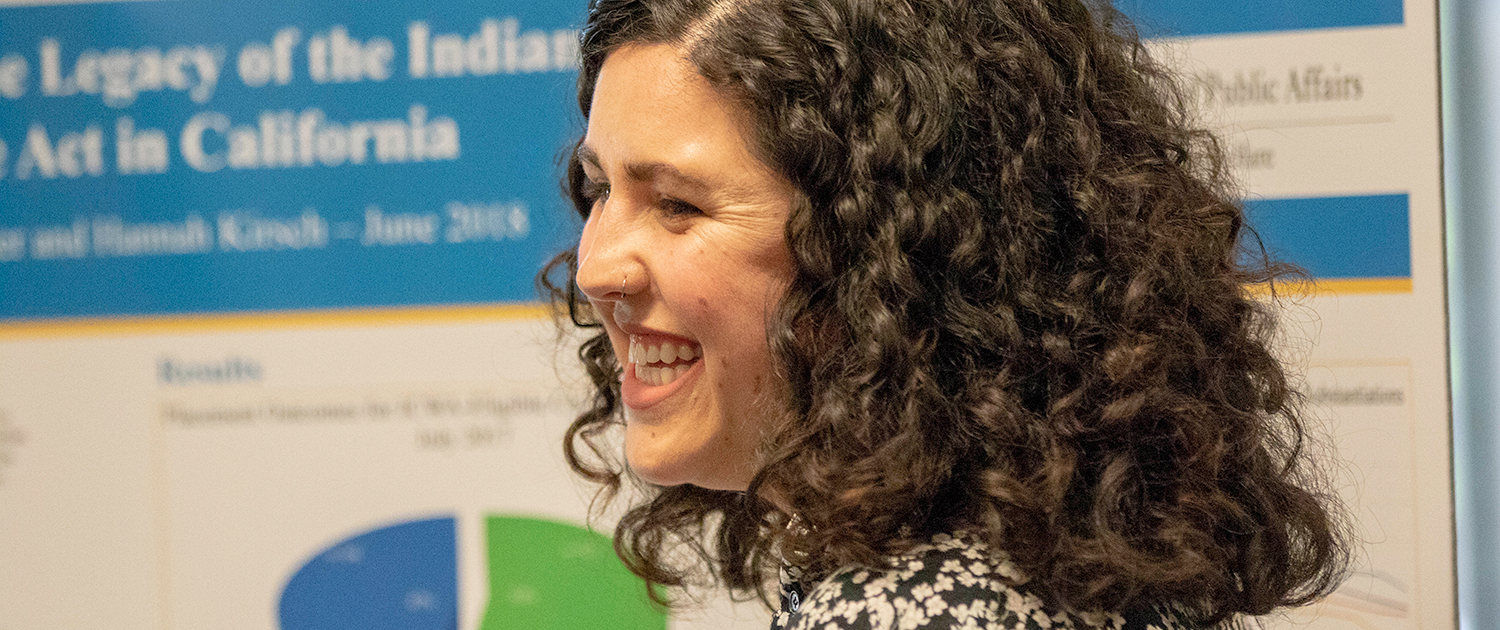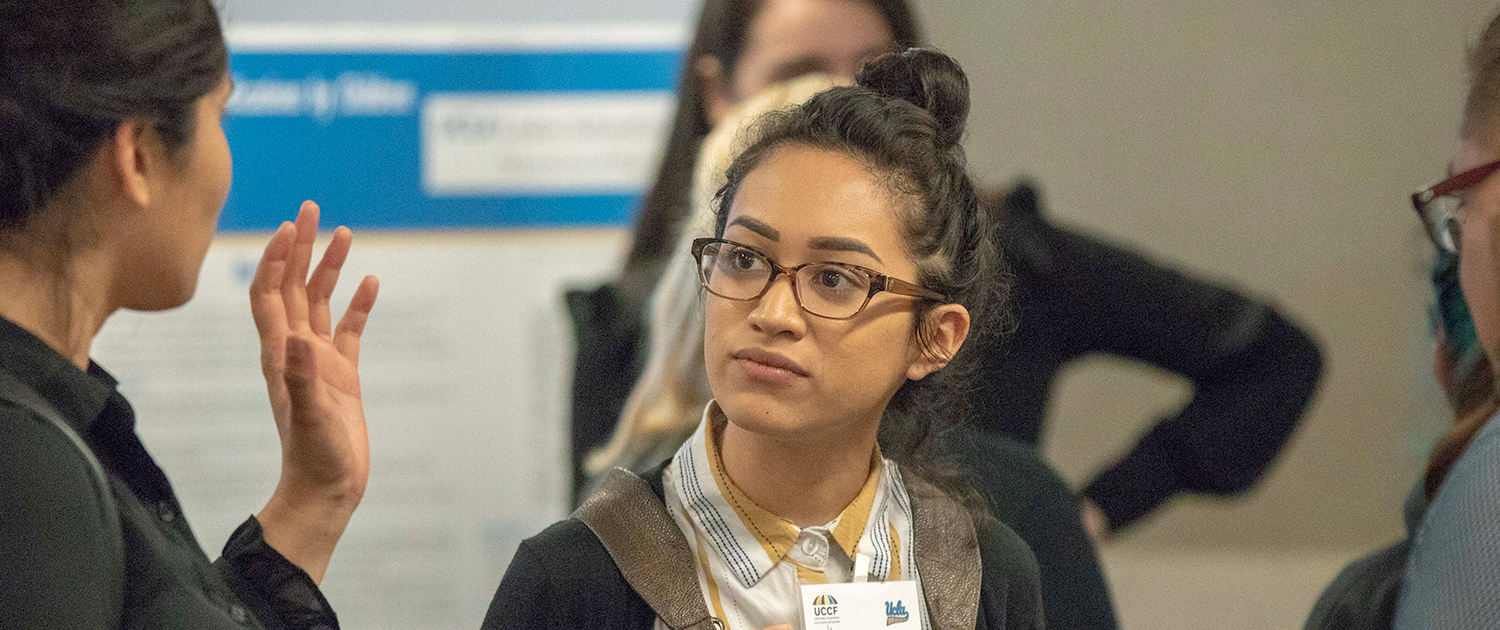The MSW program at UCLA prepares social workers for leadership and excellence in the practicum. A cornerstone of this training is the research capstone, which allows students to begin contributing to the knowledge base of the profession. In carrying out a yearlong applied capstone research project, students will articulate and address a specific researchable problem rooted in a larger social issue with relevance to policy or practice. There is flexibility in the types of projects that students can undertake, and a variety of research methods and data sources can be utilized. Students work in groups of three or four, except for the limited number of students approved to do individual projects.
Information for Community Partners
We regularly partner with community-based agencies so that students’ projects can directly inform and enhance practice in the practicum. These projects are designed with community partners to best meet agencies’ research and evaluation needs. Our students analyze agencies’ existing data or collect and analyze data that can benefit the agency, school, organization, or community. Student projects begin in October and are completed in May, when students share a report of findings with their community partner. The agency’s role is to provide the initial topic or idea, as desired, share necessary background for the project, and coordinate the logistics of accessing the data or conducting data collection. Our Capstone Project Database gives examples of students’ past projects. Any interested community partner can reach out to Dr. Laura Wray-Lake for more information (wraylake@luskin.ucla.edu).
Social Welfare Research Capstone Handbook
This handbook lays out policies, guidelines and timelines related to the MSW Research Capstone Projects. Please review and check back regularly for updates. [Updated September 6, 2023]
Research Sequence Course Requirements
The MSW research capstone project culminates a two-year research course sequence, with the following required courses:
- 213A: Social Welfare Research Methods (First Year, Winter) – 4 units
- 213B: Applied Statistics in Social Welfare (First Year, Spring) – 4 units
- 260A: Research Capstone I: Project Development (Second Year, Fall) – 4 units
- 260B/C: Research Capstone II & III – One In-Progress Course – 2 units in Winter and 2 units in Spring
- Data Gathering and Analyses (Second Year, Winter)
- Interpreting and Disseminating Research (Second Year, Spring)
Summary of Key Milestones
For specific dates for your cohort, consult the 260ABC syllabi.
- Individual Project Proposals: Due end of spring quarter of first year
- Register Capstone Group: Mid-September (prior to fall quarter)
- Submit Completed Capstone Project: May of spring quarter of second year
- Pass / Fail Decisions From Faculty Distributed: Two weeks after submission date
- Revisions (if applicable): Two weeks after receipt of feedback
Secondary Data Resources
We strongly encourage students to consider using existing data for their projects. Please explore the list of data sources we have compiled, which is not exhaustive and meant to serve as a useful starting point.
Individual Projects
A limited number of students will be selected through a competitive application process to do Individual Capstone Projects. The criteria for admission includes: (1) a GPA of 3.0 or better and evidence of strong performance in previous coursework, including research methods; (2) a research proposal that is feasible and shows promise for originality and rigor; (3) identification of a faculty mentor willing to mentor the student; and (4) a letter of recommendation from a faculty member (typically the identified mentor) that speaks to the student’s qualifications.
Capstone Project Documents
Contact
Questions should be directed to:
Lené Levy-Storms, Ph.D.
Research Capstone Coordinator and
Associate Professor of Social Welfare and Medicine/Geriatrics
llstorms@ucla.edu




